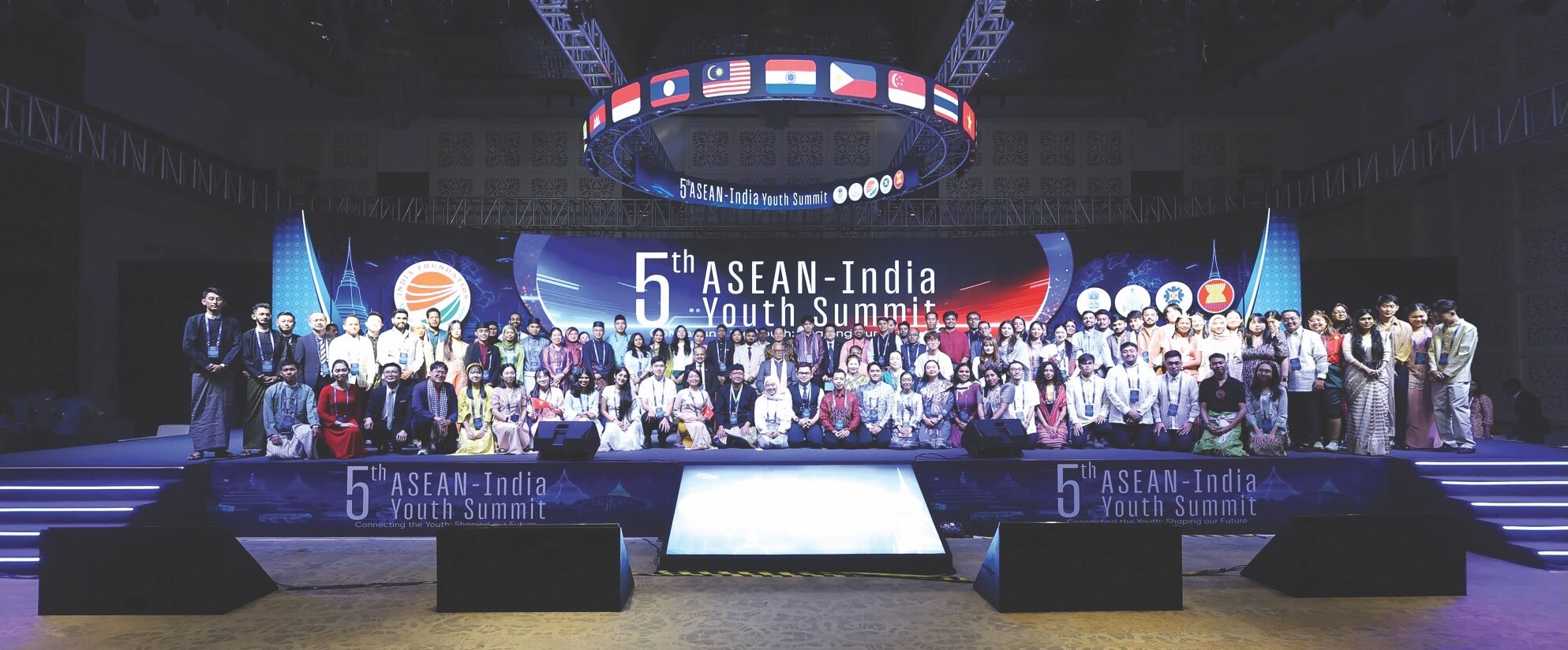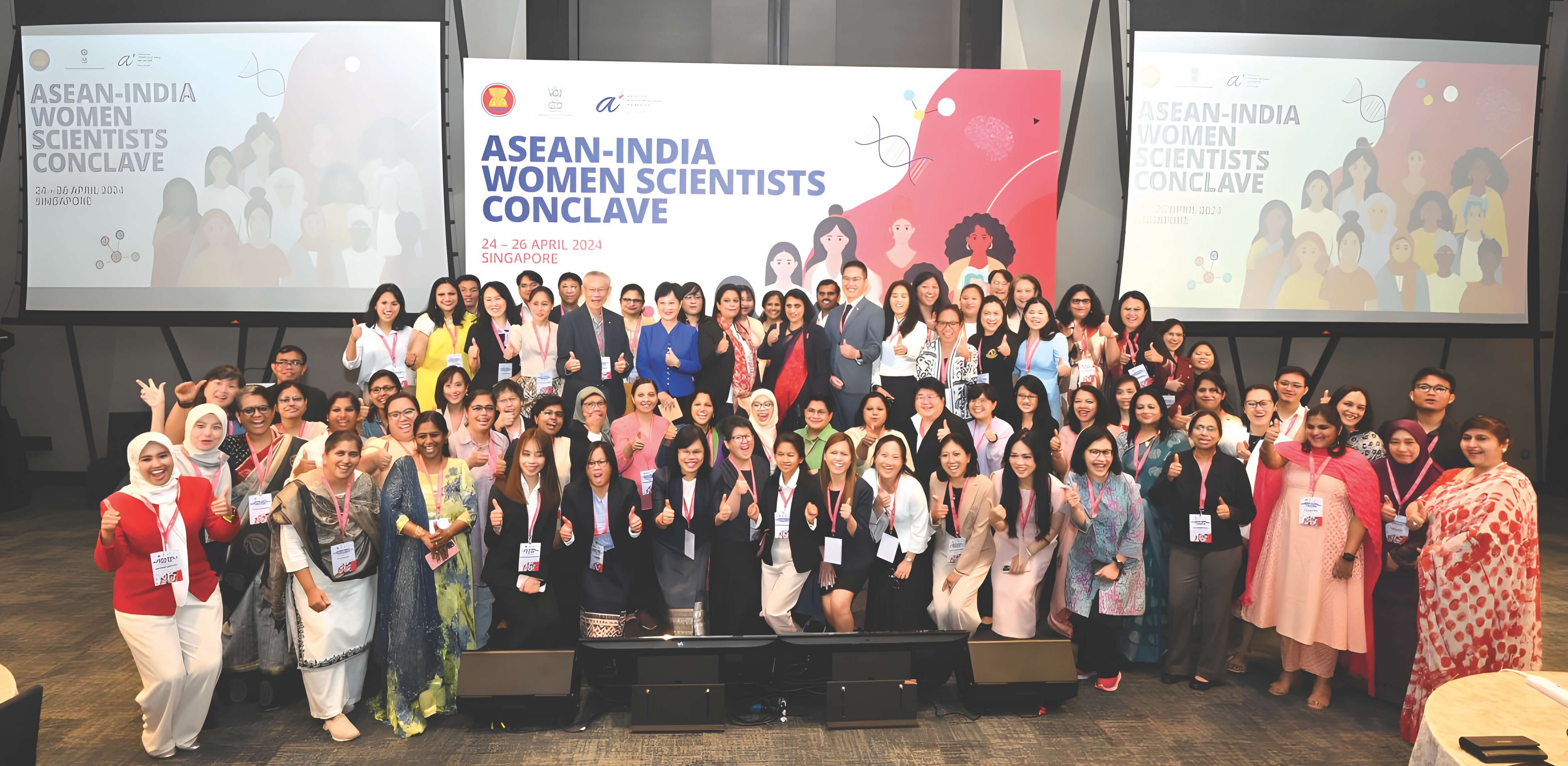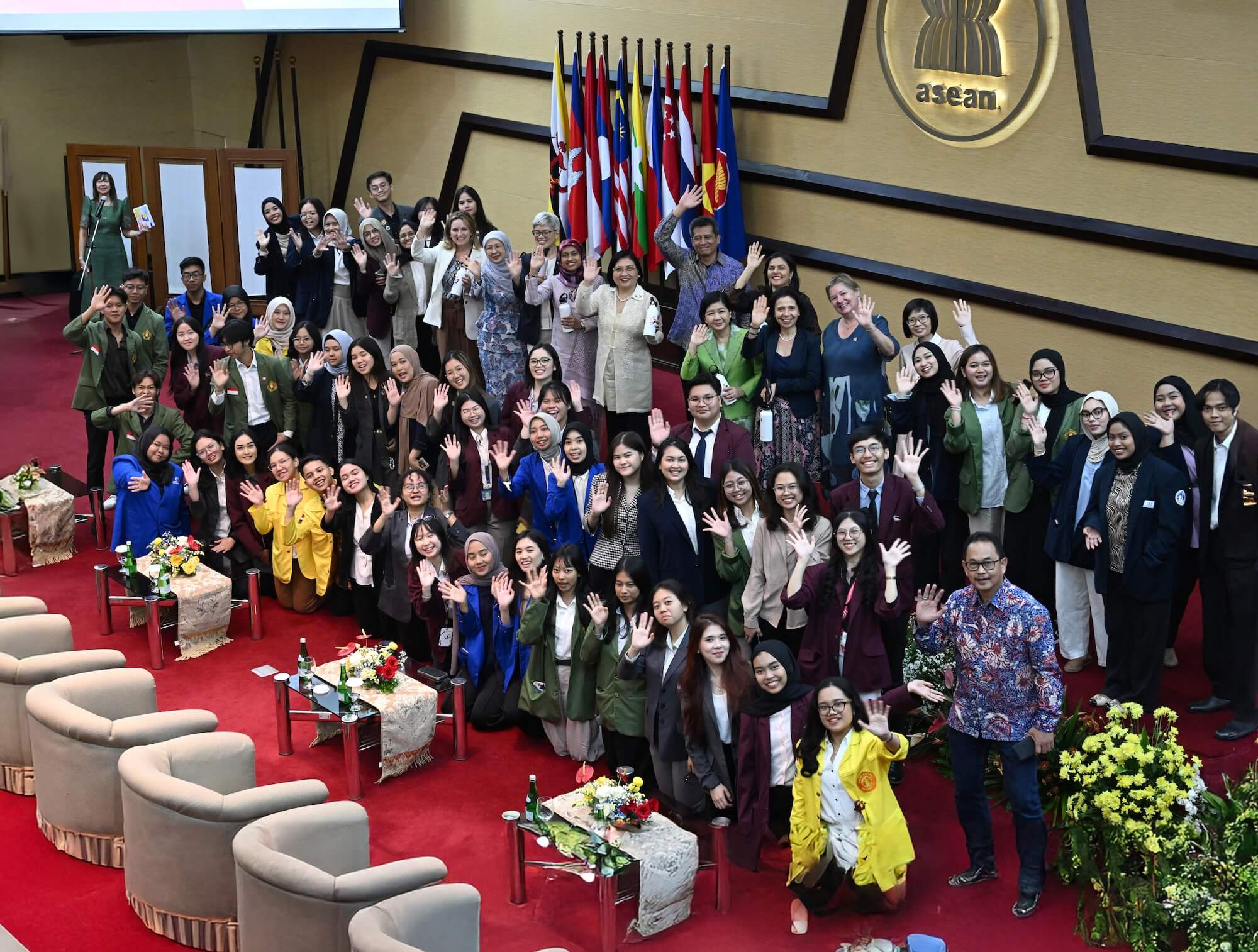



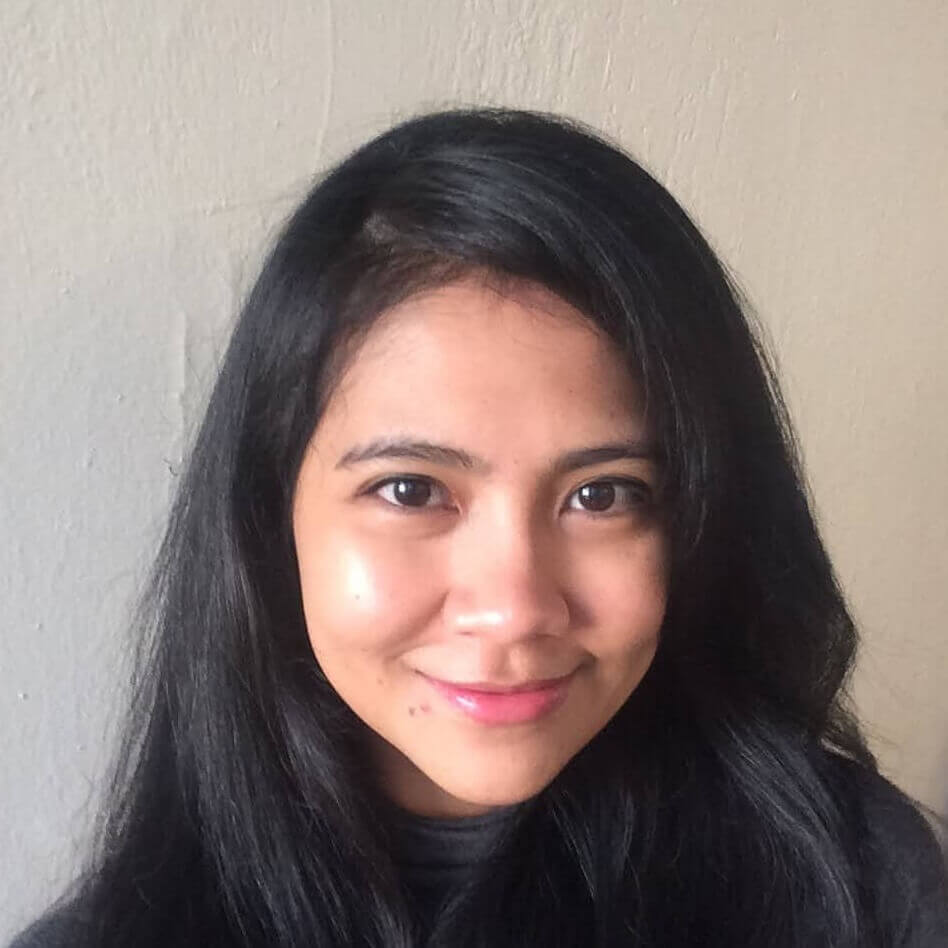
Sixty students from prominent Indonesian universities came together for an insightful dialogue with women ambassadors from ASEAN Member States and Dialogue Partners. The participating universities included Universitas Indonesia, Universitas Pelita Harapan, Universitas Pembangunan Nasional “Veteran” Jakarta, Binus University, University of Al-Azhar Indonesia, and Universitas Pertamina.
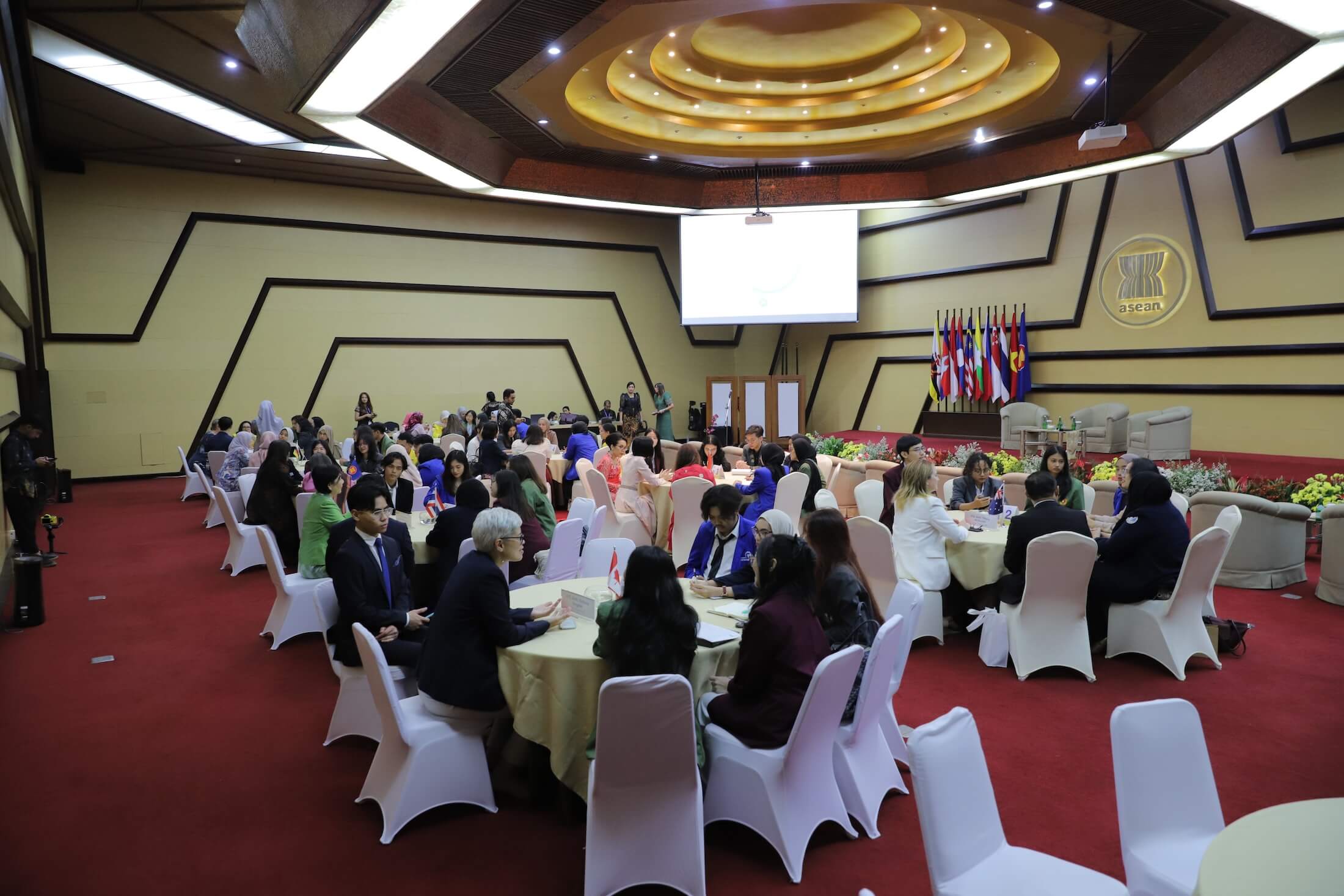
The dialogue was part of the 57th ASEAN Day celebration at ASEAN’s Headquarters on 8 August 2024. Seven women ambassadors to the ASEAN and Dato’ Astanah Abdul Aziz, Deputy Secretary-General (DSG) of ASEAN for Political-Security Community, participated in the speed mentoring event.
At the opening plenary, Dato’ Astanah shared Malaysia’s deep respect for gender and multicultural diversity which permeates all aspects of governance including in the foreign ministry, where ability rather than gender takes precedence.
“I am very grateful because my approach within the professional sphere is to always think of myself as an officer first and never from the gender lens. But even as that is how I look at myself, every once in a while, I think it’s important to look at the gender factor and to see whether women are being fairly treated,” said Dato’ Astanah.
Dato’ Astanah and the women ambassadors gamely moved around and answered questions from the students, who were divided into groups and given ten minutes with each diplomat. The conversations were animated and candid.
Ambassador Sarah Tiffin of the United Kingdom to ASEAN shares how engaging with the students is the highlight of her experience.
“The students are so passionate, so curious, and they ask really interesting, slightly unexpected questions,” she said. The energy and curiosity of the students made the discussion particularly meaningful for her.
The students enthusiastically asked about women’s significant roles in shaping the region’s future, female leadership in diplomacy, gender equality, and the responsibility of the younger generation to continue ASEAN’s legacy of peace and prosperity.
Ambassador Sarah Al Bakri Devadason, the Permanent Representative of Malaysia to ASEAN, underscored the importance of engaging the youth, who she believes are the torchbearers of ASEAN’s future.
“Women have a huge role in diplomacy,” she stated. “As both politicians and diplomats, women are often the driving force.”
Ambassador Al Bakri encouraged the students to honour the legacy of ASEAN’s founders, reminding them of their responsibility to foster a peaceful and prosperous region.
“Through our efforts, the future of ASEAN lies in the youth, and we hope to continue the legacy of what we’re striving for—the ASEAN dream,” she added.
The students were equally effusive about the event. Diva Qinaya Zahra, a 20-year-old International Relations student from Pertamina University, shared her excitement at engaging directly with influential women ambassadors.
“I first learned about this opportunity while participating in a community service programme in Bogor (West Java, Indonesia) focused on women’s empowerment, during which I received an invitation to attend the ‘Insights from Women Ambassadors Dialogue’ in ASEAN. I was incredibly excited and grateful for the chance to speak with women ambassadors and meet inspiring women who motivate me to continue learning and aspire to greatness,” she told The ASEAN.
Diva’s group interacted with Ambassador Ton Thi Ngoc Huong and Ambassador Tiffany McDonald. She recalled Ambassador Huong sharing her early experiences in Viet Nam, where women had limited opportunities in diplomatic roles.
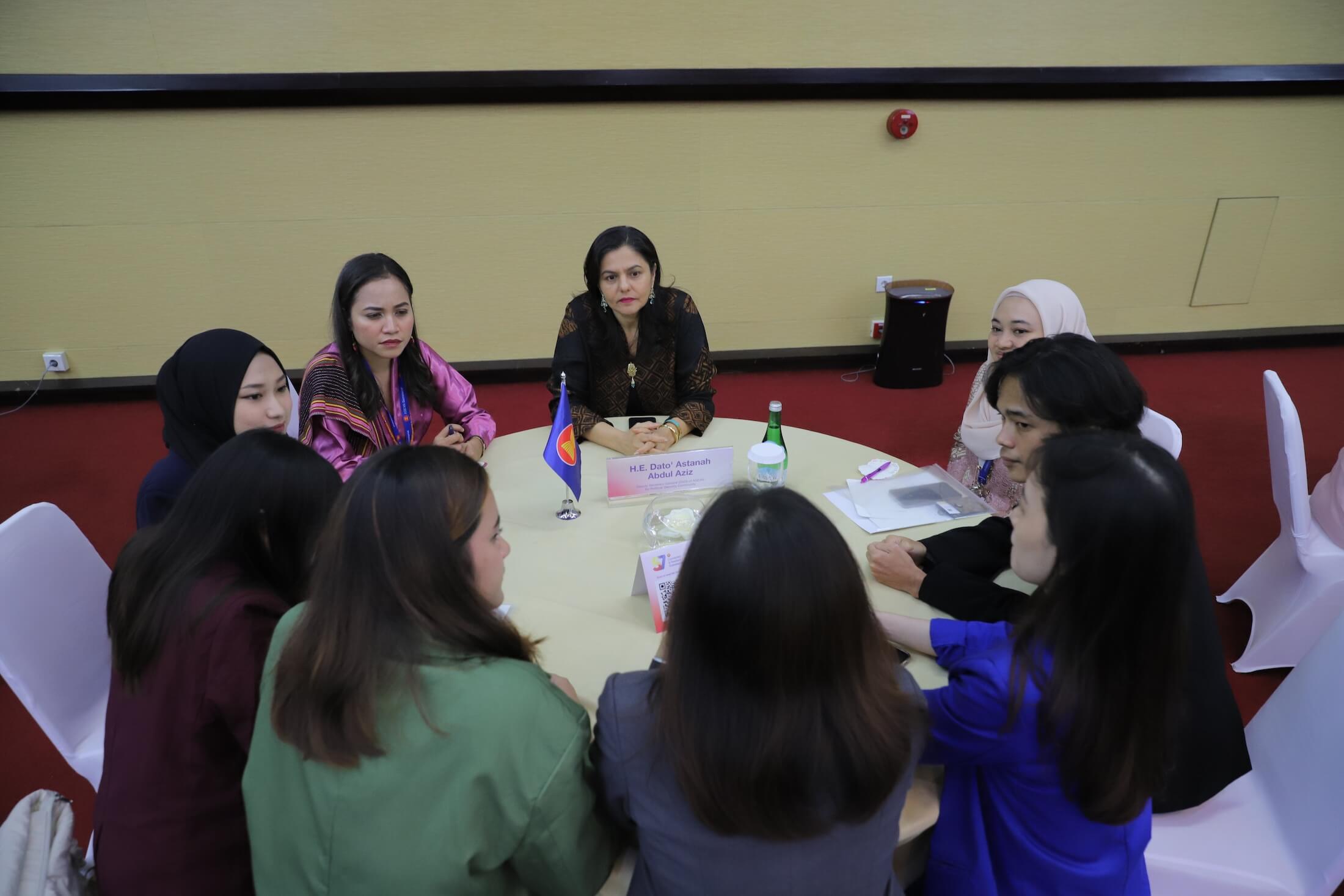
Participating Women Ambassadors and Diplomats
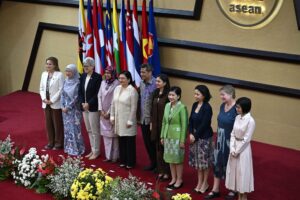
Dato’ Astanah Abdul Aziz
Deputy Secretary-General of ASEAN for Political-Security Community
Latifah Zaini
Permanent Representative of Brunei Darussalam to ASEAN
Hjayceelyn M. Quintana
Former Representative of the Republic of the Philippines to ASEAN
Phantipha Iamsudha Ekarohit
Permanent Representative of the Kingdom of Thailand to ASEAN
Dr. Ton Thi Ngoc Huong
Permanent Representative of the Socialist Republic of Viet Nam to ASEAN
Natércia Cipriana Coelho da Silva
Ambassador of Timor-Leste to ASEAN
Tiffany McDonald
Ambassador of Australia to ASEAN
Victoria Singmin
Ambassador of Canada to ASEAN
“When she applied to be a diplomat in Viet Nam, the policy at that time allowed only two positions for women, while men had more slots available, which was very concerning. However, she now feels fortunate that gender equality has developed rapidly, and many young women are concerned with gender equality issues.”
She noted that Ambassador Huong’s journey has encouraged her to advocate for women’s leadership in ASEAN.
“Ambassador Tiffany McDonald also mentioned that female leadership plays a crucial role in policy-making and peaceful planning in politics today,” she added. “However, its implementation often faces challenges from international regulations and differences in policies between countries, which become obstacles to creating policies and peace,” she said.
“I am thrilled to have the chance to ask questions and learn from women who have broken through barriers. The insights they shared, particularly about overcoming challenges and embracing leadership, really motivate me to keep on learning and aspire to contribute to ASEAN’s growth.”
Another student, 18-year-old Okta Widhyadana from Binus University, found the conversations eye-opening. Prior to the dialogue, Okta assumed that women’s leadership in ASEAN still faces significant obstacles. However, after speaking with ambassadors like DSG Dato’ Astanah and Ambassador Phantipha Iamsudha Ekarohit, the Permanent Representative of the Kingdom of Thailand to ASEAN, his perspective shifted.
“I remember DSG Dato’ Astanah said that it is not gender that defines a person, but their competency. From her remarks, I conclude that women’s leadership is increasing in ASEAN and its Member States because they are not seen through their gender anymore, but their competency as individuals. It is great that women have the opportunity to rise into leadership positions, improving the decision-making processes in ASEAN and its Member States with a wide variety of thought and perspectives,” he said.
Okta was also profoundly affected by Ambassador Phantipha’s emphasis on the role of the youth in shaping ASEAN’s future.
“She talked about the importance of education and how youth involvement is essential for the region’s progress,” he added. “As a student, I feel a sense of responsibility to carry forward these values.”
The participants left the event with valuable insights and hopes for ASEAN’s future.
“The discussion with the women ambassadors was very beneficial and exciting. It not only helped with my studies but also gave me the chance to learn about their career journeys,” said Okta, who hopes that similar events will be held on a regular basis.
Meanwhile, Diva shared her wish for the region to continue advancing innovation and cooperation.
“My hope for ASEAN’s 57th anniversary is that ASEAN continues to innovate in strengthening cross-cultural and technological collaboration, thereby creating creative solutions that inspire the world and bring sustainable progress to all its member countries,” she concluded.
Editor-in-Chief, Mary Kathleen Quiano-Castro and Associate Editor, Joanne B. Agbisit, contributed to this article.





